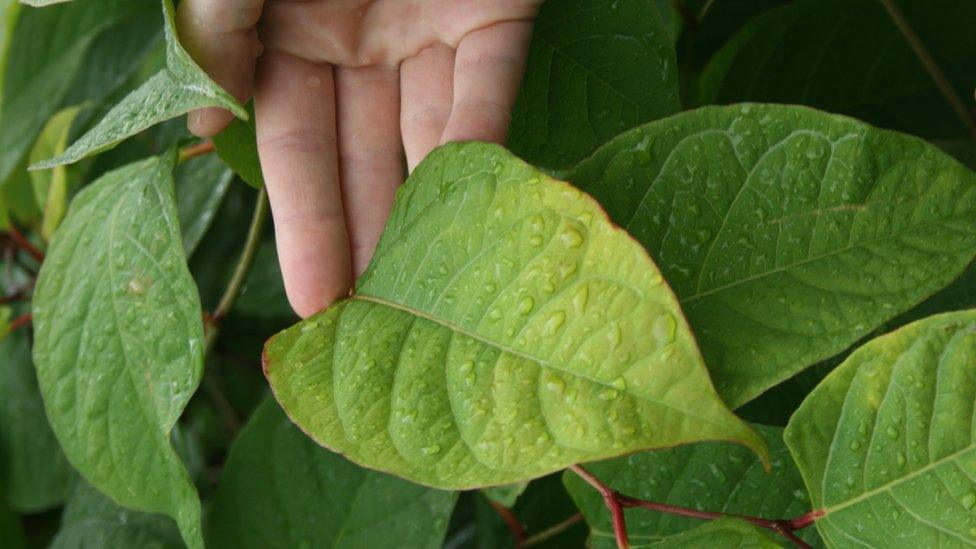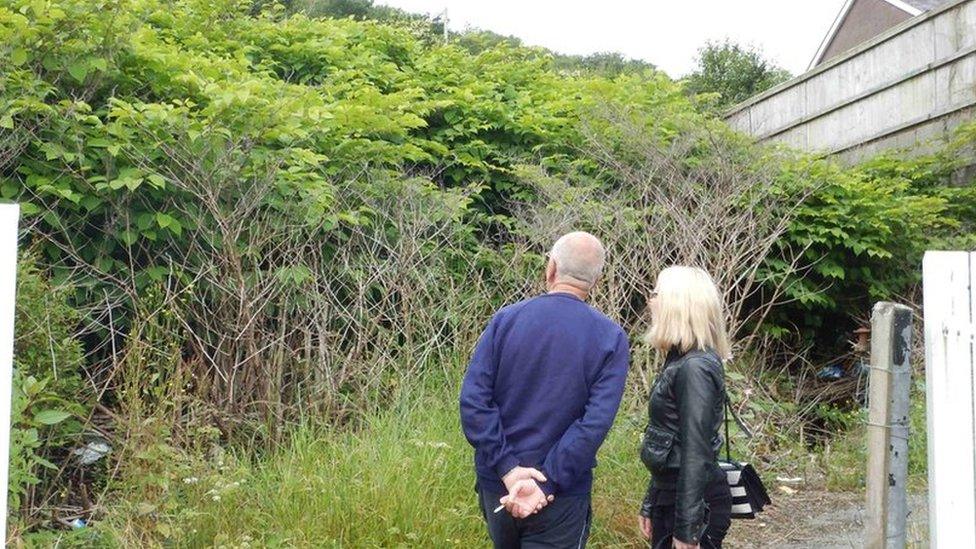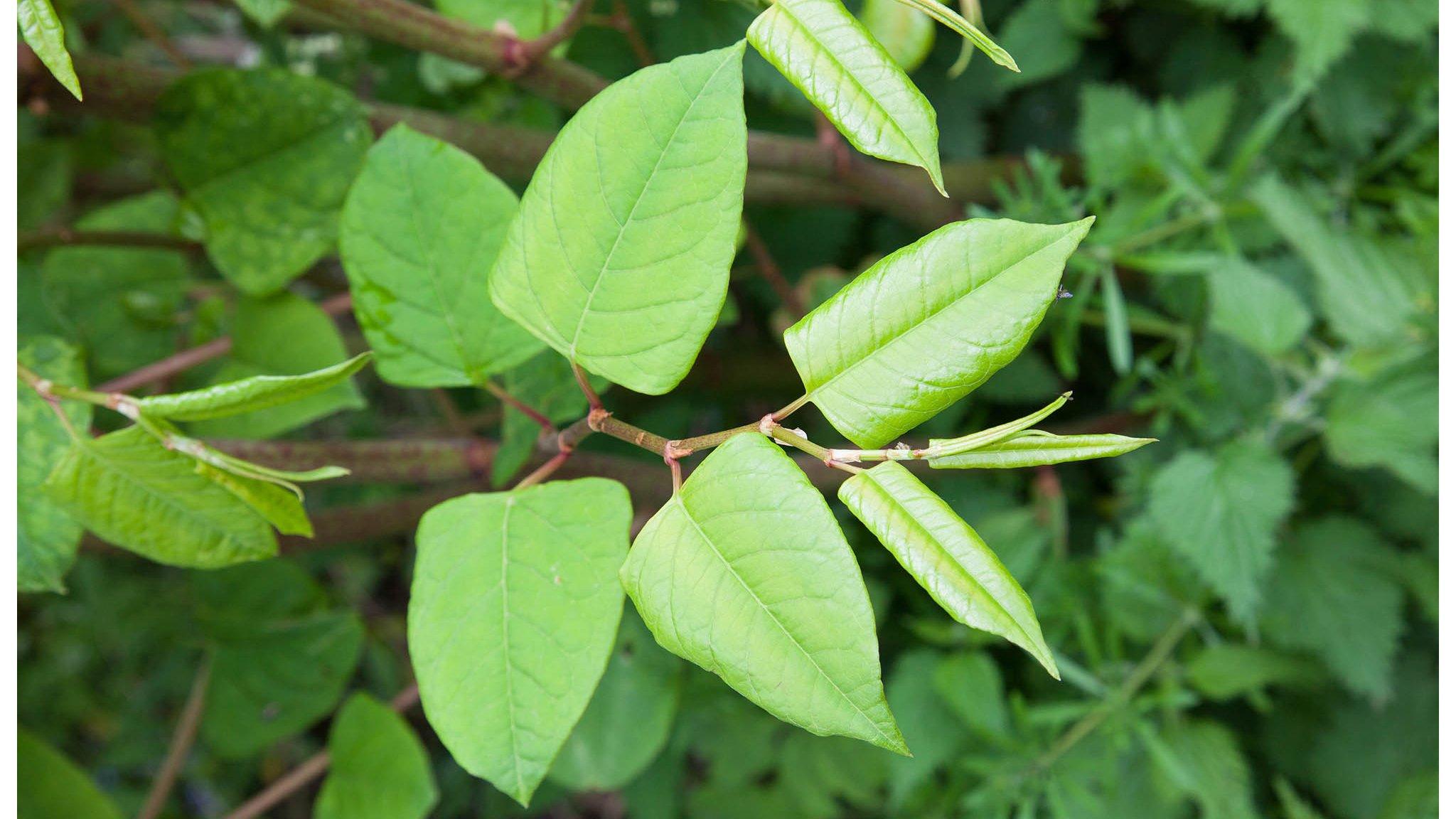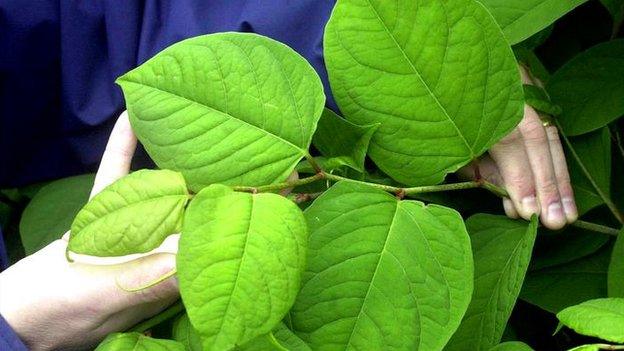Japanese knotweed: Wigan Council's £300k plan to root out plants
- Published

The plan goes before the scrutiny committee on Monday
A council is set to spend £300,000 to root out invasive plants including Japanese knotweed and giant hogweed.
Wigan Council will set aside more than £100,000 over three years to tackle destructive plants in up to 700 affected spaces if plans are approved.
It said if they spread to private land it could be liable for "significant costs" and outsourcing eradication work to contractors "could cost millions".
It follows a ruling awarding a homeowner blighted by knotweed £15,000.
'Invest to save'

A homeowner won a £15,000 compensation claim after his bungalow was towered over by Japanese knotweed
Robin Waistell from Cardiff won a four-year legal fight for compensation with Network Rail last year after his bungalow is towered over by Japanese knotweed on a railway line.
The Local Democracy Reporting Service said it was an "invest to save" scheme as the invasive non-native species (INNS) plants can also hinder housing developments.
The plans, which would see four staff members hired, have been developed by the council's corporate land management team along with organization such as the Lancashire Wildlife Trust and the Canal and Rivers Trust.
A report on the plan going before the scrutiny committee on Monday said: "Treating every single incidence of INNS is neither affordable nor necessary, except in the case of giant hogweed [because of its severe effects on people and animals].
The Department for Environment states, external planting or causing certain invasive and non-native plants to grow in the wild can result in fines or up to two years in prison.
You can also be prosecuted or given a community protection notice for causing a nuisance if you allow Japanese knotweed to grow on anyone else's property.
A study by Swansea University earlier this year found Japanese knotweed must be "controlled and managed" as it cannot be completely eradicated in the short term.
- Published11 August 2017

- Published5 July 2016
